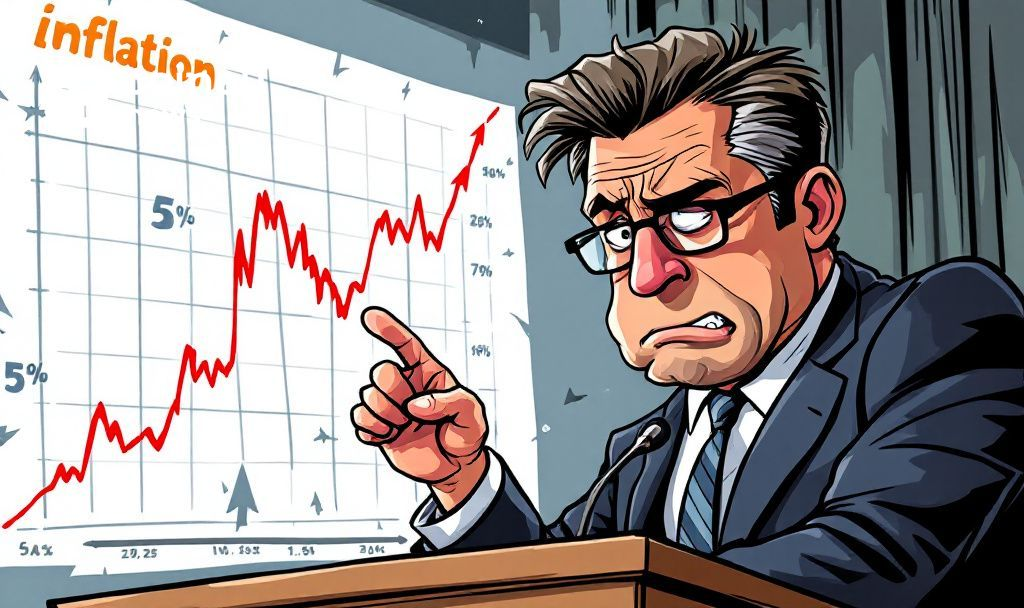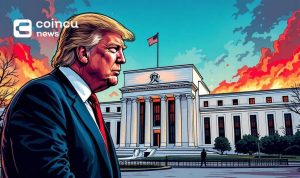- Key Point 1
- Key Point 2
- Key Point 3

Bullard Warns of Persistent Inflation Amid Economic Uncertainty
James Bullard, President of the Federal Reserve Bank of St. Louis, announced that inflation levels currently surpass expectations, posing potential challenges for monetary policy. The statement highlights a possible trade-off in the Fed’s dual mandate.
The announcement by Bullard is particularly significant amidst global economic uncertainties. Economists and financial markets are closely monitoring potential policy shifts.
Inflation Rate Expected to Fall to 2% by 2027
Bullard stated that inflation might be higher than anticipated while economic growth lags behind predictions. These dynamics could place additional pressure on monetary policy.
James Bullard, President, Federal Reserve Bank of St. Louis, “A large economic shock is necessary for a recession to occur; otherwise, growth should continue.”
He emphasized a potential trade-off involving the dual mandate. A focus on the Fed’s inflation target may intensify if inflation expectations increase. Bullard ruled out stagflation as imminent, projecting a more expected economic landscape for the coming months. However, he reassured that an economic recession is not foreseen. Inflation rates are anticipated to drop to 2% by 2027, easing current concerns.
Market observers are closely following these disclosures, particularly regarding inflation’s future trajectory. Monetary policy adjustments could significantly impact financial institutions and related sectors. Economists debate whether these projections align with current trends and data.
Did you know?
Historically, the Federal Reserve has managed to control inflation rates within a target range, adapting policies swiftly to market conditions. The anticipation of a return to a 2% inflation rate reflects similar successful adjustments in past scenarios.
The Federal Reserve remains watchful of the ongoing economic fluctuations and is prepared to adjust policies accordingly. Historical data suggests that policy adaptations have previously succeeded in stabilizing inflation rates. Market analysts are closely reviewing the possibility of regulatory adjustments in response to ongoing trends.























